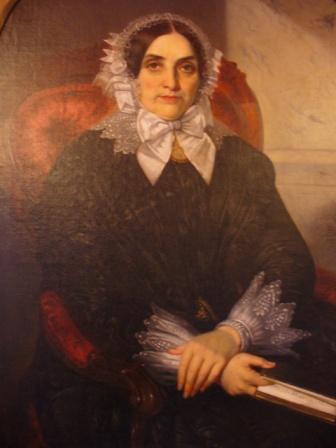|
Mathieu Damours
Mathieu Damours (d’Amours) de Freneuse (baptized March 14, 1657 – 1696) was a seigneur in Acadia and member of the Conseil Souverain of New France. He was the son of Mathieu Damours de Chauffours and Marie Marsolet. References Sources * People of New France 1650s births 1696 deaths {{France-politician-stub ... [...More Info...] [...Related Items...] OR: [Wikipedia] [Google] [Baidu] |
Seigneur
''Seigneur'' is an originally feudal title in France before the Revolution, in New France and British North America until 1854, and in the Channel Islands to this day. A seigneur refers to the person or collective who owned a ''seigneurie'' (or ''seigneury'')—a form of land tenure—as a fief, with its associated rights over person and property. A seigneur could be an individual—male or female (''seigneuresse''), noble or non-noble (''roturier'')—or a collective entity such a religious community, monastery, seminary, college, or parish. This form of lordship was called ''seigneurie'', the rights that the seigneur was entitled to were called ''seigneuriage'', and the jurisdiction exercised was ''seigneur justicier'' over his fief. In the wake of the French Revolution, seigneurialism was repealed in France on 4 August 1789 and in the Province of Canada on 18 December 1854. Since then, the feudal title has only been applicable in the Channel Islands and for sovereign princ ... [...More Info...] [...Related Items...] OR: [Wikipedia] [Google] [Baidu] |
Acadia
Acadia (french: link=no, Acadie) was a colony of New France in northeastern North America which included parts of what are now the Maritime provinces, the Gaspé Peninsula and Maine to the Kennebec River. During much of the 17th and early 18th centuries, Norridgewock on the Kennebec River and Castine at the end of the Penobscot River were the southernmost settlements of Acadia. The French government specified land bordering the Atlantic coast, roughly between the 40th and 46th parallels. It was eventually divided into British colonies. The population of Acadia included the various indigenous First Nations that comprised the Wabanaki Confederacy, the Acadian people and other French settlers. The first capital of Acadia was established in 1605 as Port-Royal. An English force from Virginia attacked and burned down the town in 1613, but it was later rebuilt nearby, where it remained the longest-serving capital of French Acadia until the British siege of Port Royal in 17 ... [...More Info...] [...Related Items...] OR: [Wikipedia] [Google] [Baidu] |
New France
New France (french: Nouvelle-France) was the area colonized by France in North America, beginning with the exploration of the Gulf of Saint Lawrence by Jacques Cartier in 1534 and ending with the cession of New France to Great Britain and Spain in 1763 under the Treaty of Paris. The vast territory of ''New France'' consisted of five colonies at its peak in 1712, each with its own administration: Canada, the most developed colony, was divided into the districts of Québec, Trois-Rivières, and Montréal; Hudson Bay; Acadie in the northeast; Plaisance on the island of Newfoundland; and Louisiane. It extended from Newfoundland to the Canadian Prairies and from Hudson Bay to the Gulf of Mexico, including all the Great Lakes of North America. In the 16th century, the lands were used primarily to draw from the wealth of natural resources such as furs through trade with the various indigenous peoples. In the seventeenth century, successful settlements began in Acadia and in Quebe ... [...More Info...] [...Related Items...] OR: [Wikipedia] [Google] [Baidu] |
People Of New France
A person ( : people) is a being that has certain capacities or attributes such as reason, morality, consciousness or self-consciousness, and being a part of a culturally established form of social relations such as kinship, ownership of property, or legal responsibility. The defining features of personhood and, consequently, what makes a person count as a person, differ widely among cultures and contexts. In addition to the question of personhood, of what makes a being count as a person to begin with, there are further questions about personal identity and self: both about what makes any particular person that particular person instead of another, and about what makes a person at one time the same person as they were or will be at another time despite any intervening changes. The plural form "people" is often used to refer to an entire nation or ethnic group (as in "a people"), and this was the original meaning of the word; it subsequently acquired its use as a plural form of per ... [...More Info...] [...Related Items...] OR: [Wikipedia] [Google] [Baidu] |
1650s Births
Year 165 ( CLXV) was a common year starting on Monday (link will display the full calendar) of the Julian calendar. At the time, it was known as the Year of the Consulship of Orfitus and Pudens (or, less frequently, year 918 ''Ab urbe condita''). The denomination 165 for this year has been used since the early medieval period, when the Anno Domini calendar era became the prevalent method in Europe for naming years. Events By place Roman Empire * A Roman military expedition under Avidius Cassius is successful against Parthia, capturing Artaxata, Seleucia on the Tigris, and Ctesiphon. The Parthians sue for peace. * Antonine Plague: A pandemic breaks out in Rome, after the Roman army returns from Parthia. The plague significantly depopulates the Roman Empire and China. * Legio II ''Italica'' is levied by Emperor Marcus Aurelius. * Dura-Europos is taken by the Romans. * The Romans establish a garrison at Doura Europos on the Euphrates, a control point for the commercial ro ... [...More Info...] [...Related Items...] OR: [Wikipedia] [Google] [Baidu] |



_1938.jpg)